Dashnor Kaloçi
Memorie.al publishes the unknown story that happened 87 years ago, on August 14, 1933, when while walking on one of the main streets of Thessaloniki, in not very well-known circumstances, Hasan was killed in an assassination attempt. Pristina, a former member of the Albanian parliament and prime minister of Albania, who was like a political refugee in Greece. According to the Greek press, which referred to the competent bodies of the local police, the person who fired five revolver bullets at the well-known Albanian politician was called Ibrahim Çelo and was a close friend of the victim! Rare testimonies of the well-known scholar, publicist and historian, Gani Demiri (Ratkoceri), on the efforts of a group of intellectuals of Kosovo origin, who in 1960, managed to convince the relevant authorities of official Tirana about the figure of Hasan Prishtina and turn him from a “traitor and enemy of the Albanian people” as he was considered in the textbooks and history books of Albania, at that time, to a “great patriot of the Albanian cause”!
87 years ago, on August 15, 1933, almost all the newspapers published in Albania, as well as those of its diaspora, published the sensational news of the assassination attempt in the city of Thessaloniki in Greece, of the former Prime Minister of Albania, Hasan Prishtina. According to the Albanian press of that time, which mostly referred to Greek newspapers for that event, the assassin who had fired five revolver bullets at the well-known Albanian politician, who at that time was an anti-Zogist emigrant in Greece and several other European countries, he was an Albanian, even a close friend of the victim and his name was Ibrahim Çelo.
Numerous newspaper pages of those days that commented extensively on the event reported that the man in question, who was of Albanian origin living in Resen, Yugoslavia, had shot at the former Albanian prime minister as they walked together., side by side on one of the main streets of the city of Thessaloniki. What was the truth about that assassination and what were the main reasons that pushed the Albanian Ibrahim Çelo to shoot at the well-known politician, who, in addition to the post of Prime Minister of Albania, which he held for only five days in December 1921, had he been elected as a deputy in some legislatures in the parliaments of Turkey and Albania?
In this regard, we are giving only some of the comments made at that time by the Albanian and Greek press, a brief summary of the life and political and patriotic activity of Hasan Prishtina (according to the Encyclopedic Dictionary, published by the Academy of Sciences, Tirana 1988 ), and the exclusive testimony of the researcher, publicist and well-known writer, Gani Ratkoceri (“Teacher of the People”), who in the 60s, together with some other intellectuals of Kosovo origin, intervened with the relevant authorities Albanians of that time in Tirana, making possible the rehabilitation of Hasan Prishtina and from the “traitor” that he was labeled in the text of the History of Albania of that time, turned him into “great patriots”!
News and comments from Greek and Albanian newspapers on the assassination of Hasan Prishtina in Thessaloniki
‘Vatra’ newspaper: Hasan Prishtina was killed last night with five rifles on the streets of Thessaloniki. – The killer was arrested by the authorities. – What the Greek newspapers say about the cause of the murder.
It was reported on the radio that last night on the main street of Thessaloniki, Hysen Tolja Ibrahimi from Resna, fired five times with a revolver against Hasan Prishtina, who left him dead. The killer was caught once and put under investigation, to find out the cause. Authorities are continuing investigations into the cause of the murder. Some newspapers say that the murder was committed for personal reasons, another part of the newspapers, considering that the murderer had come from his country a few days ago, assume that he was a foreigner in this murder.
Details of the Thessaloniki murder in Greek newspaper publications
How did the murder of Hasan Prishtina happen?
The murdered man had proposed to the brave man the assassinations against King Zog. “Fos” newspaper writes, while “Information” says that they pushed him to escape.
Thessaloniki 16 August – Around 2 pm on Monday, yesterday, namely, Hasan Prishtina and Ibrahim Çelo (and not Hysen Tolja Ibrahimi), crossed the street “Cimiski”, assembled loudly in Albanian. When they reached the intersection of Vogaciku Street, Ibrahim quickly pulled out a Smith system revolver and fired twice at Hasan, lying breathlessly on the ground. With all this, the brave man sat on the lying body and emptied over the head of the wounded three more revolver rifles to complete the aim completely. After these, the brave man ran to leave the street “Vagaciku”, near the Metropolis, in order to escape from the people who gathered quickly. The crowd began to shout and chase after him, and this scene seemed to disturb Ibrahim, who, bewildered, fell on the window of a nearby shop and broke it, but quickly gained power and ran down the street of the Metropolis. But the people followed him and he then entered the house of Dr. Dukidhi, where he was caught by a policeman. He put him on a motorcycle and took him to the police station, while Hasan Prishtina was taken to the municipal hospital, where doctors confirmed his death. The killer of the former Albanian Prime Minister, is called Ibrahim Hysen Çelo, and he is 37 years old. He is from Resen, Albania (Greek newspaper “Fos” that writes this, is wrong because Resen is in Serbia), Albanian citizen, very intellectual, speaks French and Italian without error and Turkish in his mother tongue. Polite in manners, beautifully dressed, gives the impression that he is a man who was not born a murderer. He came to Greece from Nice, France on May 9, 1933, and although he did not appear to be regulated by the law on foreigners, he was fined 230 drachmas. The murdered Prishtina Hasan Ahmet, also this Albanian, who once came as an Austrian citizen, has been the Minister of Internal Affairs and World Affairs in Albania and for a long time the Prime Minister of Albania in the regime of Fan Noli. It was said specifically by the Albanian circles here, that he was the vice-president of the fanolists and represented in the Balkans, Turkey and Central Europe Fan Nolin, who is in Russia to direct the propaganda against King Zog. The assassination of Hasan Prishtina is a great mystery for the reason why the authorities keep a great secret. But despite this, from the news we have gathered, it is understood that during many days, the two were seen together, especially in the hotel “Astorja” where the murdered man lived. Their conversations seemed friendly even to their acquaintances whispered as “something they were preparing”, which erupted in yesterday’s murder. As far as we could be informed from various sources who can better understand how things are, Hasan Prishtina was a type of troubled man, who tries with every sacrifice to organize conspiratorial organizations, which has always cost him expulsive (extraditions), our note), from all the Balkan states where he resided.
Hasan Prishtina in Nice, France
Hasan Prishtina went to Nice, France and there he met Ibrahim Çelon who had been installed there for 26 years and stayed there for almost 20 months, fleeing again to Turkey. He was expelled from Turkey and installed in Sofia, from where he wrote a letter to Shelo, inviting him to come down and meet in Thessaloniki when he would also come. In the letter, the Albanian politician did not mention the reason why he called him, but stressed that he had to be assigned a job that would receive 5000 drachmas per month. So, after sending his wife and his cousin to Spain, from where his wife is, Sheloja arrived in Greece where he introduced himself to the victim’s brother, owned in “Tsimiski” street, Mr. Omer Fejzi. I told him the letter, but he replied that his brother had not yet come from Vienna and that he did not have a weight in politics, so why not get involved.
Pristina proposes Ibrahim Çelos to kill Zog
A month ago, Sheloja March saw that she had run out of money, she left for Vienna to meet Hasan, but unfortunately, when you leave for Vienna, the latter returns to Thessaloniki. He came back here 14 days ago and I meet him wanting to learn what work he would do to get 5000 drachmas a month. Pristina saw many tricks, told him that it was time to kill N. M. His, King of Albania Ahmet Zogu and some of his Ministers and this will become a reason to raise the statute for the service that would bring the country. Shelo was shocked by this proposal and told him, that it should be thought. But I ask him to give me another job, from where he can earn all 5000 drachmas a month. Since that day, during these 14 days you meet day by day with Prishtina and yesterday he clearly told him that he could not do such a job, that on the one hand he thinks about his family and on the other hand I cannot do them the grave of Albania. But I urge him not to break his promise, to find him a job to get the promised amount. – I did not bring you to give you money for your beautiful eyes. Here in Bulgaria, where you get ten comedians to kill Zog, if you leave, we will not get there. After this response, the assassin pulled out his revolver and fired it against the vice-president of the fan party. The circles of the Albanian Consulate, when asked yesterday by the editor of “Fosi”, said that they had known for a long time that Prishtina was coming here, but there was no news about his murder. The Consul will not even think that the reasons for this murder are political. The universe showed its horror for this crime.
The newspaper “Information” writes that Moscow pushed him
On the other hand, the French-language notebook “Information” dealt with the reasons that may have pushed the brave man to get involved in this murder, writes that according to her information, Ibrahimi will have been pushed by Albanian political fugitives. The newspaper in question justifies this version as follows: Albanian political fugitives are divided into two groups. One was led by Hasan Prishtina and the tendencies of this group have been conservative, while the other group is directly related to Moscow. Now the Greek notebook continues, it is very likely that Ibrahim was pushed by the Moscow-linked group to dismantle the conservative group.
Echo of the Thessaloniki press about the murder of a political fugitive
In Thessaloniki, five revolver bullets fired one after the other by an Albanian citizen with foreign citizenship, tragically detached from the life of a former Albanian Prime Minister, who fled for political reasons. The Greek newspapers of that city support the cause of that ugly event for two reasons. First: that Hasan Prishtina – the victim, did not keep the promise he had given in a letter to Ibrahim Çelos, – the brave one – to find him an honest job in Greece, while I explained orally that the money, 5000 drachmas per month, – would be paid only when he killed the King of the Albanians, but Ibrahim Çelua, angry with the toy he played, upset by the lack of money because of Hasan who brought him to Thessaloniki, and angry about the destined proposal he made, drew in a minute of despair the revolver, and laid it on the slain ground.
The second: that the fleeing Albanians are divided into two groups, one led by Hasan Prishtina, with conservative tendencies, and the second led by people with Bolshevik tendencies, directly connected with Moscow, and from this antagonism of principles, Ibrahimi is put by the second group to exterminate the person of Hasan Prishtina who would bring the dissolution of the conservative party to the benefit of the first. The event took place in a city of a foreign state and it’s also been that as brave as the victims have lived again in foreign countries, it is very difficult, or rather impossible to be in a position to form, even an assumption, on the real causes that ended in the tragedy of Thessaloniki. We are therefore constrained, to comment on the ugly murder of Monday, to rely on the publications of Greek newspapers. Nevertheless, it is good to note, thus among the forerunners, that the opinion of the Thessaloniki newspapers should not be thrown so far behind. The notebooks of the Greek Republic on the concrete issue must be impartial, because the event took place between two people who have nothing to do with the internal affairs of Greece. But in any case, we can draw two things from the murder of Thessaloniki, and since both are those issues that provoke the contempt of every Albanian who cares about his homeland and who wants to keep the Albanian prestige and honor high. The Albanian, with these principles, strongly condemns the assassinations, whoever shoots the rifle and whoever accepts the bullets in the body. In the same way, the Albanian with those principles, again strongly condemns any person who tries to raise his hand against the King of the Albanians. The fate of our homeland is closely, very closely related, to the person of Zog, and whoever is against this should know that he is against the homeland. Talk about these two points does not enter. And this is why, the Albanian people listen with contempt to the ugly assassination of Thessaloniki and condemn with their conscience with high treason, every Albanian who tries to touch the current Leader of Albania.
Hasan Prishtina, according to the Encyclopedic Dictionary, compiled by the Academy of Sciences
(1873-1933). Prominent patriot and revolutionary democrat who fought for the freedom and independence of the Homeland, for the democratization of the life of the country, for the liberation of Kosovo from the great Serbian yoke and its unification with the Albanian state. He was born in Vuciterna into a patriotic family. He completed his higher studies in Istanbul for political and legal sciences. In the years 1908-1912 he was elected three times in the Ottoman parliament, which he used as a tribune for the protection of the national rights of Albanians. At the beginning of 1912, together with Ismail Qemali, he was among the initiators for the organization of the General Armed Uprising in Albania, where he distinguished himself as the main leader. In 1912, he was appointed minister in the national government of Vlora. With the establishment of the committee “National Defense of Kosovo (see) he was elected a member, while in December 1919, the committee appointed him as chairman of his delegation to the Peace Conference in Paris, where he would seek unification with the Albanian national state. of Kosovo and other Albanian areas in Yugoslavia. He took an active part in the organization of the Lushnja Congress in 1920 (see) and in April 1921, he was elected deputy of Dibra in the Albanian parliament. In December 1921, he headed one of the most democratic governments in the country. Hasan Prishtina was one of the main leaders and organizers of the anti-Zogist movement of February-March 1922. During the years 1922-1923 he stood out as a staunch opponent of the internal reaction. He is known as a fighter for the protection of the “Neutral Zone” of Junik from Serbian and Zogist forces, as the leader of the national liberation movement and insurgent groups in Kosovo against Serbian rule. Hasan Prishtina took an active part in the preparation of the Democratic-bourgeois Revolution of June 1924 (see) and fought for the implementation of the program of the democratic government emerging from this revolution. In September 1924, at the head of a delegation on behalf of the committee “National Defense of Kosovo”, he went to the League of Nations in Geneva where he protested against the barbarism on the Albanian population of the Serbian chauvinist circles in Kosovo. After the failure of the 1924 revolution he left the Homeland. During all the time in exile (1925-1933) he remained on the most advanced wing of the Albanian National Movement. He continued the fight against dictatorial and monarcho-fascist regimes, against Zogist tyranny in Albania and the great Serbian electorate in Kosovo. Under his leadership, the “Kosovo Liberation Committee” was established, which operated abroad alongside the National Liberation Committee (see). Hasan Prishtina tried to coordinate the national war in Kosovo with the war of the oppressed Balkan peoples. Several times he became the initiator of cooperation with representatives and national liberation organizations of Macedonia, Bosnia, Croatia and others who suffered under the yoke of foreign chauvinist regimes. Hasan Prishtina demanded the respect of the national rights of all Balkan peoples, which according to him would be achieved with the creation of nation-states based on the principle of self-determination, excluding any form of hegemony over the other. Four times the enemies organized armed assassinations. He was twice imprisoned by Serbian and Bulgarian invaders. He was sentenced to death six times: The Young Turks, the feudal lord and tool of Serbia, Esat Toptani, the big Serbian chauvinist circles and three times the government of Ahmet Zogu. On August 14, 1933, he was assassinated by Ahmet Zogu’s agents in collaboration with the Yugoslav government. Hasan Prishtina has left a series of articles as well as his memories of the anti-Ottoman uprising of 1912 that have value for the history of our national and democratic movement. In 1977 his remains were brought from Thessaloniki to Albania. (A. Ha.) (Taken from the Encyclopedic Dictionary of Albania, published by the Academy of Sciences, Tirana 1988)
Until 1960, official Tirana considered Hasan Prishtina a traitor!
Like rarely any other figure in the politics and history of Albania. that their activity and activity had during the first half of the last century, Hasan Prishtina, followed the same “fate” both in life and after his death. This has to do with the fact that, as during all his political activity, where there were a series of oscillations, with many ups and downs (from Turkish and Albanian MPs, to the Prime Minister of Albania and then a political emigrant in some countries Europe), even after his death, for a part of the Albanians, he remained a “great patriot and patriot of the national cause”, while for another part of the Albanians, he was nothing but a “renegade and traitor of the homeland” ! Even the historiography and propaganda of Enver Hoxha’s communist regime, until the early 1960s, considered Hasan Prishtina a “reactionary and traitor to adheut”, which was written quite clearly in all textbooks and those of scientific and academic institutions of the Albanian state of that time. Although in the historiography and various books published up to that time in Albania, the assassination of Hasan Prishtina in Thessaloniki in 1933, was hatched by King Zog, the official propaganda of that time, continued to label him as a traitor to the homeland. According to the exclusive testimonies of the well-known scholar, publicist and writer Gani Demiri (Ratkoceri), originally from Kosovo (former political prisoner before the 1990s and Teacher of the People), the rehabilitation of Hasan Prishtina became possible in the beginning of the 60s, when a group of Kosovar scholars, historians and publicists who had come as emigrants to Albania, such as: Ajet Haxhia, Gani Demiri, etc., made numerous requests to the Central Committee of the ALP, requesting a review of the figure of Hasan Prishtina. After a series of meetings and consultations with scholars and professors of history, they had a meeting with the former Minister of Education of that period, Manush Myftiu, to whom they expressed their concern about the figure of Hasan Prishtina. After that meeting, the issue began to take shape and the figure of Hasan Prishtina was considered by the Institute of History. According to Gani Ratkoceri, he personally was one of the first to raise the issue of the figure of Hasan Prishtina, during a free conversation he had with his professor, Alex Buden, to whom he said: “Professor, we in Kosovo have known for the patriot Hasan Prishtina”. According to Gani Ratkocer, after a series of debates and meetings, somewhere from 1961-1962, it was finally decided that Hasan Prishtina be declared a patriot of the homeland and as such be treated in the official books and historiography of the communist regime of that time. After the rehabilitation of his figure, the communist regime of Tirana, made possible the bringing of his remains to Albania in 1977. /Memorie.al




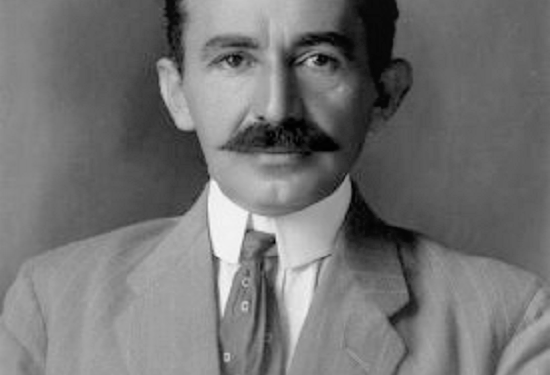
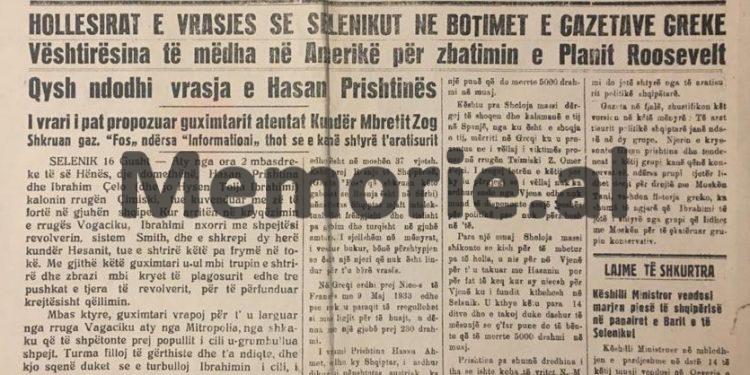
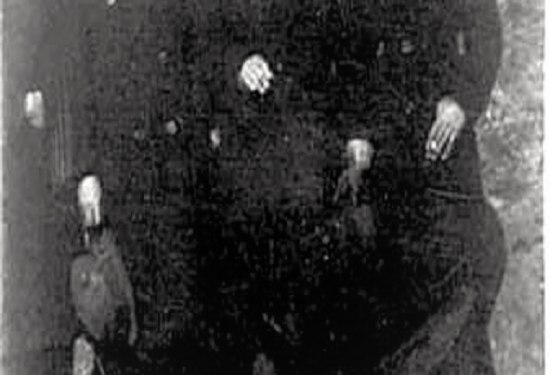
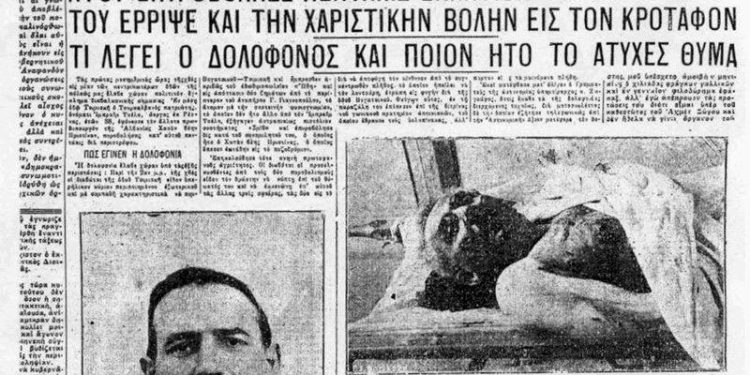
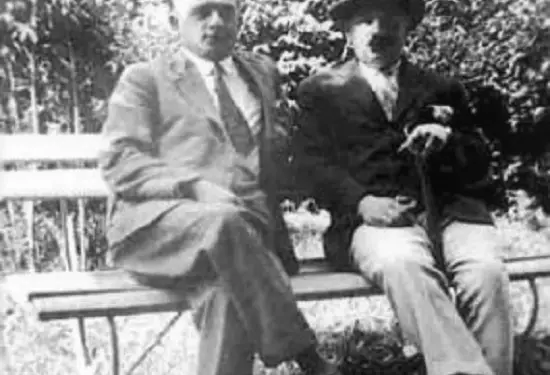
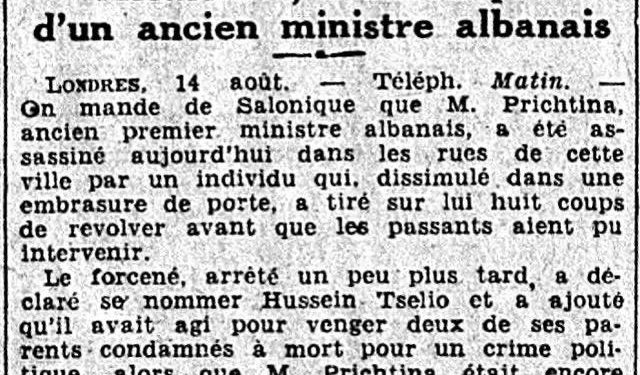
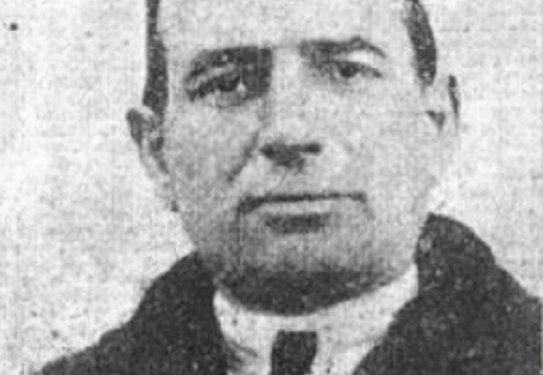
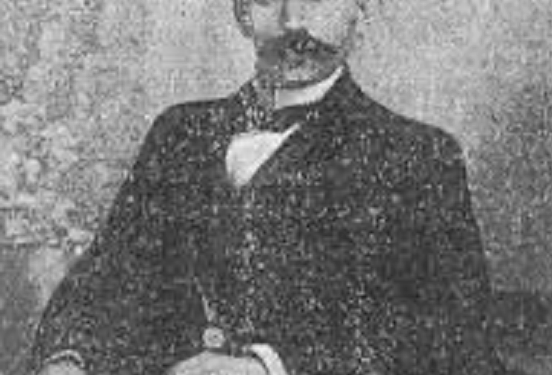
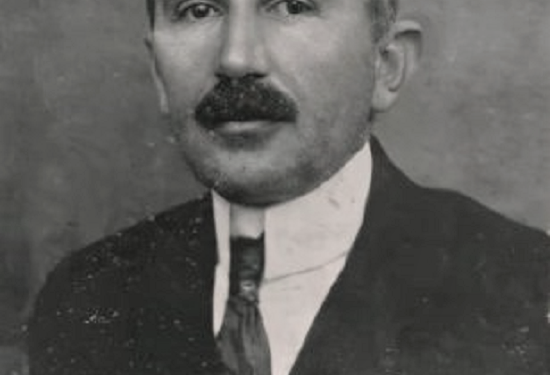
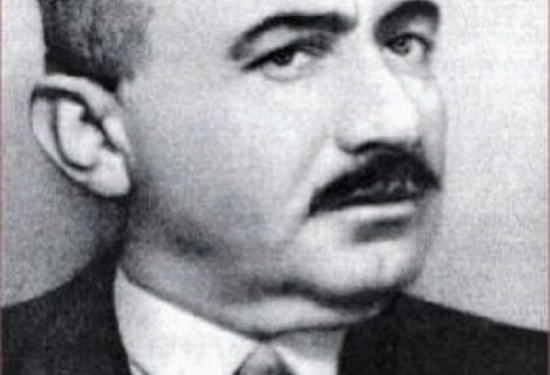
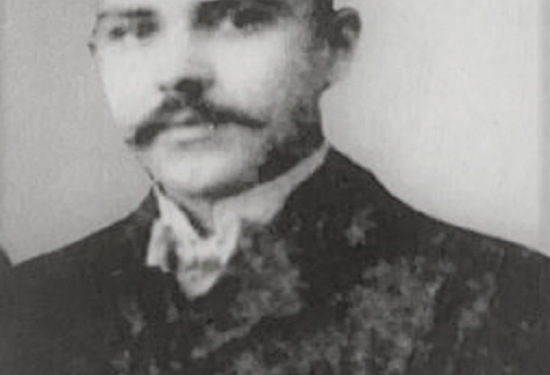
![“In an attempt to rescue one another, 10 workers were poisoned, but besides the brigadier, [another] 6 also died…”/ The secret document of June 11, 1979, is revealed, regarding the deaths of 6 employees at the Metallurgy Plant.](https://memorie.al/wp-content/uploads/2026/02/maxresdefault-350x250.jpg)





